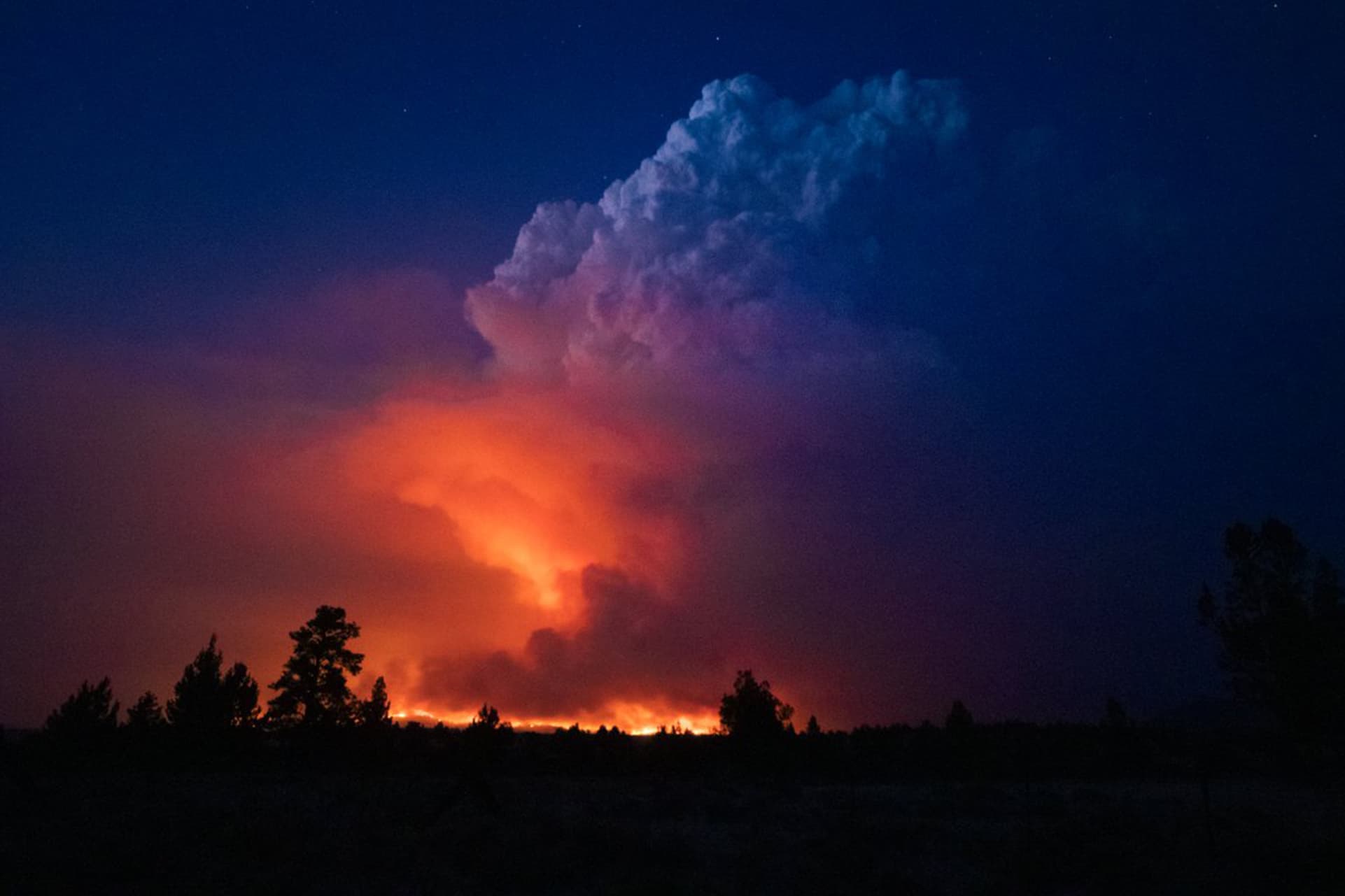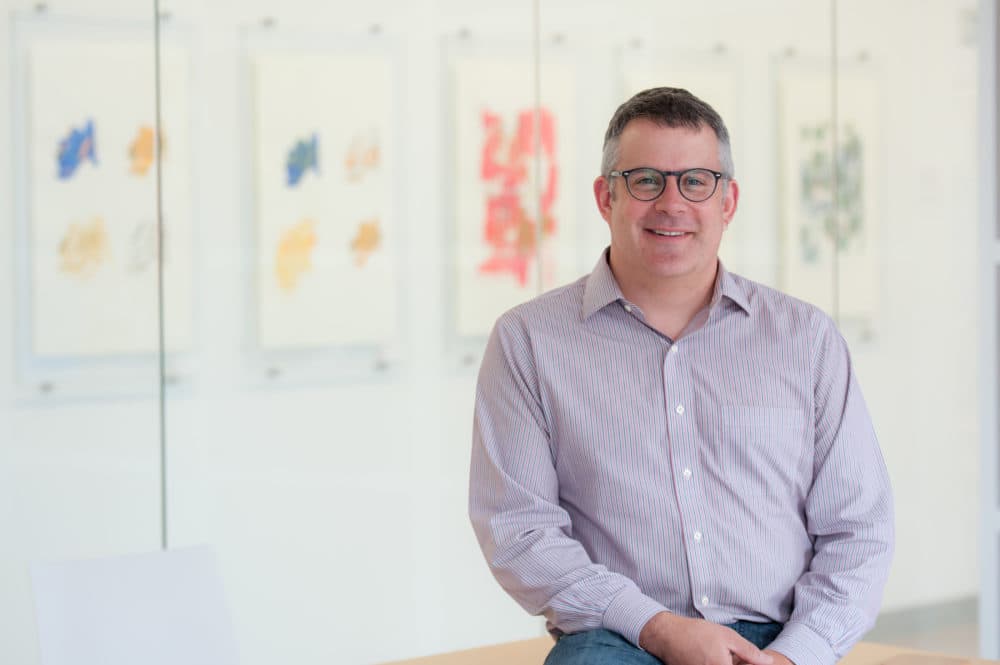Advertisement
Inside The UN Climate Report With One Of The Local Authors

The latest report from the UN’s Intergovernmental Panel on Climate Change (IPCC) delivered a stark message: climate change is hitting the world faster and harder than we expected, and we have about a decade to ratchet down our carbon emissions in order to avoid the worst of it. The sweeping document represents latest science on climate change; writing it took 234 scientists from 66 countries — and 517 additional contributors — who reviewed about 14,000 scientific papers over three years.

That's a lot of scientists. One of them was Baylor Fox-Kemper, a professor of Earth, environmental and planetary sciences at Brown University. Fox-Kemper served as the lead author of chapter nine, which focuses on some subjects near-and-dear to Boston residents: oceans, ice and sea-level rise. Fox-Kemper herded more than 80 scientists toward consensus during a global pandemic — an unprecedented challenge.
Did we mention that the job is unpaid? Yup.
WBUR sat down with Fox-Kemper for the inside story of how he juggled climate grief and 12-hour zoom sessions to help bring the report together.
The conversation has been condensed and edited for clarity.
Why did you volunteer for this? Did you get dragged into it somehow, or did you want to be part of it?
I have been working on making climate models better for years — that's really the center of what my research group works on. So when the survey came out, I responded and said "Sure!" I was expecting to get a contributing author role.
But then, as it turned out, I was asked to take on this more serious role, which really was a major commitment. It was really intellectually challenging and rewarding in the work sense, even though it was filled with all kinds of grief about the climate change that's coming.
Did you get depressed? How do you pull yourself out of that?
I went through waves of initial excitement to be involved in the process, to a kind of climate grief in the middle where you just can't handle the situation. Now I feel a little more determination to get the most accurate information out to folks around the world so they can get ready and also change their emissions so we can avoid the worst effects.
Advertisement
This whole process took about three years — how does it actually work?
The IPCC bureau selected this whole team and then we started talking to each other. We got together for the first time in Guangzhou, China, and hashed out what the tasks were ahead. We met again in Toulouse, France, and then we were supposed to meet a few more times, but that's when COVID started, so we switched to Zoom.
What was it like to go virtual? It seems like kind of a bummer, but maybe there were some advantages?
Well we had these meetings that were every six months or so, and we were already working virtually in between. So we had an online system for sharing drafts and we were already doing teleconferences, to some extent.
But when you try to replace a one-week meeting when you might work 15- or 16-hour days with a Zoom version, that starts to get very intense. We averaged 12.6 hours a day on Zoom for the last two weeks, so it was an exhausting process.
Were you working at home during all this? What did your family think?
They were extremely accommodating. I obviously couldn't have done it without them.
I would go down onto the back porch and I would sit outside and listen to these meetings and pipe up when I needed to, and hope the neighbors didn't care that much.
You have to get 195 member nations to sign off on this — do you feel like the results get watered down? Or do you feel like the report ends up too conservative because you have to get to this consensus?
There's this kind of Hollywood idea about how science works — some famous scientist, usually played by Jeff Goldblum, gets out and solves the problem and you only need that one scientist.
In reality a scientific breakthrough usually comes from one scientist's lab or maybe one team, but then it's confirmed by multiple teams. And when we get multiple papers, multiple lines of evidence, in agreement, that's when we say we have high confidence or very high confidence. So, yeah, they're not paying as much attention to single papers that might be going against the grain. Those might turn out to be right, but we'll get to those in the next one after a few more papers on the topic have been written.
Reading the report, it didn't seem conservative — it seemed pretty alarming.
For sure, there are lots of alarming results in this report. But I think you could say that it is biased towards a more conservative take. This isn't an outsider opinion about what might happen. This is actually the consensus.
Let's talk a little bit about that. What does the report tell us about sea-level rise? What are we looking at in Boston or New England?
Some part of the sea-level rise that we're going to see by 2050 is unavoidable. I mean, it doesn't really matter whether we go to the very low emissions or very high emissions — we'll see about nine to 11 inches of sea-level rise over 2005 levels.
When we go out to 2100, then we start to see a difference with what we do. For very low emissions, we see maybe one to two feet of sea-level rise. And for very high emissions, we see two to three feet of sea-level rise. And there are changes that we can't rule out that might happen in both Greenland and Antarctica to the ice sheets that could make that sea level rise as high as six feet under high-emission scenarios by 2100.
More from WBUR
What else could drastically effect sea-level rise?
The Gulf Stream can change, in particular the part of the Gulf Stream that goes up to the North Atlantic and then sinks and comes back down. That part of the current — we project — is slowing gradually over the rest of this century rather than collapsing. But were it to collapse, we would see a little bit over a foot of sea level rise here in New England right away. That's a low likelihood but high impact outcome.
Why would that happen? Can you give me a little of the science behind that?
So the way the Gulf Stream works is, it has high sea level on one side, and a lower sea level on the other side. It's a little bit over three or four feet difference from one side to the other side.
Woah - weird! Like, in the middle of the ocean?
Yes, over 50 to 100 kilometers or so of distance. It's much, much more flat than any road you've ever driven on, but it's still tilted. So that tilt is part of the mechanism of how the Gulf Stream works — it's the pressure gradient that provides the balance with the rotation of the Earth to keep the Gulf Stream moving the way that it does. So if the Gulf Stream slows down, that pressure gradient would reduce a little bit and that reduction would lead to a lowering of sea levels on the seaward side of the Gulf Stream and raising of the sea levels on the shore side.
Any other takeaways for our region?
It's expected to be warmer and wetter, particularly in the winter. Spring is supposed to have more extreme rainfall events and more extreme drying when it's not raining. That's because, as the atmosphere gets warmer, it can carry more water, which means it can dump more rain, but it can also lift more water out of the soil.
On a personal note, I grew up in coastal Virginia and now I live in Rhode Island and I went to school in Cambridge. And, you know, for all of these places it's going to be a very challenging adaptation process to manage what's coming. It will impact our region in a big way and we'll have a lot to deal with as we go. And some part of that is whether or not we're able to reduce emissions globally. We're just in for a difficult time.
Are you glad you were part of this process?
As difficult as this process was, all those grueling hours, it expanded my appreciation for the other scientists and the IPCC bureau for being a really dedicated community to bringing the best possible science in front of the widest possible audience. It's an unbelievable community to have been a part of.
